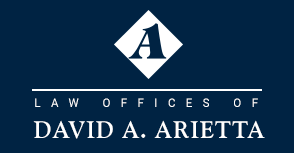Leaving these assets out your will can actually help your loved ones and heirs.
A last will and testament is the foundation of an estate plan, which lets you plan for your estate after you’re gone. However, there are certain things that you might not want to put in your will. In general, a last will and testament is an easy and and straightforward way to state who gets what when you die, and name a guardian for your minor children.
Leaving certain items out of your will can actually benefit your future heirs because they’ll get their inheritance faster. When you die, your will needs to be validated in a court of law before your belongings are distributed. Called probate, this process requires some time and effort and can take longer if there are issues. Including something in your will that doesn’t need to be there could delay probate and someone might even contest the will. Property in a trust and payable-on-death accounts are two examples of assets that can be distributed to your beneficiaries without having to use a will.
Finally, you should not put anything in a will that you do not own outright. If you jointly own assets with someone, they will most likely become the new owner.
Key Takeaways
-
Property that can pass directly to beneficiaries outside of probate should not be included in a will.
-
You should not give away any jointly owned property through a will because it typically passes directly to the co-owner when you die.
-
Try to avoid conditional gifts in your will since the terms might not be enforced.
-
Personal desires and sentiments should be written in a letter of intent.
1. Trust property
A trust is a separate entity that you can use to distribute your assets. It is a common estate planning option that avoids probate. When you title property into the trust, it becomes subject to the trust’s rules, which are laid out in the trust document and not the will. Since the trust operates independently, it’s key to avoid inconsistencies and not to put anything in your will that the trust will take care of and distribute on its own terms.
Wills and trusts work in conjunction with each other in a solid estate plan.
2. Assets with named beneficiaries
Certain assets and financial accounts are payable- or transferable-on-death. They are distributed or paid out directly to the named beneficiaries, which makes putting them in a will unnecessary (and potentially irksome if you’re inconsistent). You can, however, include information about these assets in your letter of instruction (more on that later).
Instead of putting these assets in your will, assign them beneficiary designations instead:
-
Bank accounts
-
Brokerage or investment accounts
-
Retirement accounts and pension plans
-
A life insurance policy
3. Jointly-owned property
Property that you jointly own with someone else will almost always directly pass to the co-owner after you die, so you should not include it in your will. For example, if you and your sibling own stocks in a jointly owned brokerage account, then they will continue to own the account and its investments after you die. This arrangement is called joint tenancy with rights of survivorship. (You can learn more about joint tenancy in our discussion of joint wills.)
There are other situations where you may jointly own property with someone else, even if both of your names are not explicitly named to the account or asset. In a community property state, anything you acquired during marriage may be considered community property, and ownership is split equally between you and your spouse. There streamlined mechanisms to confirm your spouse receives your community property but you should still have your will confirm that your spouse is to receive such property if you live in a community property estate.
4. Conditional gifts and bequests
In a will you can be specific about who receives what (my niece receives my car), but attaching certain conditions (my niece receives my car, only if she uses it for going to school) may not work since no one can legally enforce the terms so you should leave these kinds of wishes out. If you have specific details about how someone should use their inheritance, whether they are a spendthrift or someone with special needs, you may be better off creating a trust that can give you more control over your beneficiaries, even from beyond the grave.
Other things you may not want to put in a will
Business interests can be given away through a will, but there are a few reasons you may not want to. Wills must be probated in court, which can take time, making for a bumpy transition after you pass away. And the succession could be contested. To create less of a headache for your business partners and family, you might want to speak with an estate planning attorney who can better help prepare the succession of your business. They can even help with any estate tax issues you may face as a business owner.
Funeral instructions might not be so useful in a will, since the family members may not be able to view the will before making arrangements. To make sure your wishes are carried out, try communicating with your executor ahead of time. In general, personal wishes and desires are best saved for a letter of instruction, a more informal document that’s actually meant to relay these details and express personal sentiments.
Certain situations may be more difficult to cover in a will. If you have a blended family or a child with special needs, you might want to consider other estate planning options that would better cover your needs. A will isn’t always the best option for bequeathing everything, particularly when the beneficiary needs to qualify for government benefits, like Medicaid, for example.
→ Learn more about different different types of trusts — one of them might be right for you
